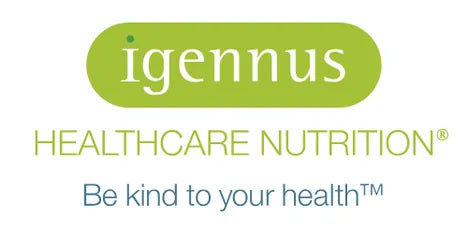Vitamin D has been in the news a lot recently, thanks to TV shows such as ‘Trust Me, I’m a Doctor’ and news reports of its potential ability to stop the common cold and flu. The truth is that vitamin D is receiving a lot of hype for a lot of important reasons. Like any vitamin, it is essential for so many of our bodily processes, yet it is believed that as many as 1 in 5 people in the UK are deficient in this vitamin. So let’s have a look into Vitamin D in more detail.
What is Vitamin D?
We think of vitamin D and automatically think of the sun, and rightly so, yet by definition a vitamin is a compound that we must obtain from our diet as our bodies cannot produce it. But our bodies are designed to produce vitamin D from direct sunlight exposure – so is it a vitamin at all? When relying solely on this method, however there are so many factors to consider that it appears almost implausible to effectively rely on sun exposure alone.
First, we must consider skin type. It is believed that paler Caucasian skin tones will take around 10-15 minutes of sunlight exposure between the hours of 10am – 3pm in comparison to 120 minutes for darker African skin tones. Then we must consider the seasons; here in the UK, the NHS recommend that no one can rely on vitamin D from the sun during the autumn and winter months. Then we must consider cloud coverage and UV levels and whilst it is optimistic to think we will be having beautiful sunny days throughout spring and summer, unfortunately this never seems to be the case. And finally, the risk of skin cancer as sunscreen will reduce the production of vitamin D in the body from the sun.
If not the sun, where can we obtain it?
The recommended daily dietary intake of vitamin D is 400 IU (10mcg). A portion of salmon would provide you with 128% of your daily requirement, a portion of sardines would provide 44%, a portion of tuna would provide 23% and 1 egg would provide 11%, however, the FDA recommends eating a maximum of 2 – 3 portions of fish per week due to the levels of mercury found in these foods, so we cannot rely solely upon our intake from fish either. Furthermore, elderly populations, obesity and the health of the gut are also risk factors for vitamin D deficiency due to absorption in the gut and increased requirements. Is it any wonder then that so many people in the UK have lower than optimal vitamin D levels?
Why do we need Vitamin D?
Vitamin D is required for bone health as it increases the absorption of calcium in the body; therefore it’s not surprising to see that deficiency is linked with osteoporosis, osteomalacia and rickets and is supplemented for those with osteoporosis to help reduce the risk of falling and fractures occurring. Vitamin D deficiency is also linked to muscle pain and weakness, increased risk for upper respiratory tract infections such as bronchitis, an increased risk for certain cancers and an increased risk for type 2 diabetes.
Who should be supplementing with Vitamin D?
Unless you are eating a portion of salmon 3 days a week and obtaining your optimal amount of sun exposure on the other 4 days a week, for 52 weeks of the year, the answer is that we all should probably be supplementing it. And whilst the current guidelines suggest a daily intake of 400 IU (10mcg) in order to maintain healthy levels, for those who are deficient, this may not go a long way towards taking you from deficiency to optimal status.
Introducing Pure Essentials Daily Vitamin D3
There are two forms of Vitamin D; Pure Essentials Daily Vitamin D3 contains the most potent supplemental form, cholecalciferol (D3) which is up to 3 times as active as the synthetic ergocalciferol (D2). It is also the most biologically active form of the two, is readily absorbed and therefore easily utilised by the body.
As a fat-soluble vitamin, the body can struggle to expel vitamin D if taken in high amounts for too long. Due to its role in regulating our blood calcium levels, supplementing with high doses can lead to high levels of calcium in the blood, also known as hypercalcaemia which can lead to feelings of fatigue, weakness, sleepiness and headaches, to name but a few.
Each tablet of Pure Essentials Daily Vitamin D3 provides 2000 IU (50mcg) of cholecalciferol, allowing the body to replenish its vitamin D stores as well as maintain an optimal level all year round to support a healthy immune system, maintain healthy bones, teeth and muscle function and maintain blood calcium levels, without risk of the negative side effects of high doses.
Pure Essentials Daily Vitamin D3 is safe to provide to children aged 9 years and above as well as for use in pregnancy and lactation with just 1 bottle providing a 1 year supply.
If you are concerned about your current vitamin D levels, please consult your GP or local health-care practitioner who will be able to advise you further on testing.








